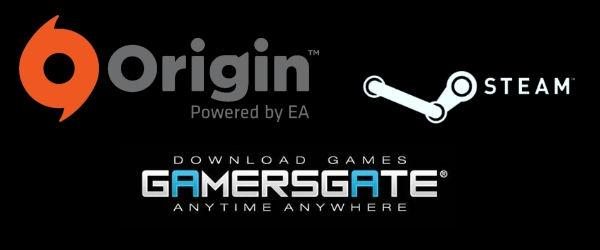Downloaded games can be resold rules EU court
Ryan Martin / 13 years ago

The problem with most digitally downloaded games is that once bought digitally you then own them for eternity. They cannot be sold as they are registered under your name for the particular account of the company you bought them from. However, an EU ruling now looks set to change that. The court of justice of the European Union has said that consumers should be allowed to resell digital copies of games, much like how you would pop on down to your local game shop to hand in a pre-owned game and get some cash or credit for it.
The court also rules that consumers should be allowed to sell content in any format, be it a physical copy or digital copy. The ruling emerged after the case of UsedSoft against Oracle. The company Oracle tried to stop UsedSoft from selling Oracle licenses from previous owners. The EU court ruled that even if the license agreement of a game prevents the transfer of that downloaded game then the license agreement is void and the transfer can still be undertaken.
This would seem to open up a floodgate now. For all the residents of the European Union that use digital distribution services of games such as EA’s Origin or Valve’s Steam, you are now by law allowed to transfer ownership of your games to another person. Yet it remains to be seen how this ruling will be enforced and facilitated, i.e. how does a steam user sell a game to his friend who only has Origin?
You can read a section of the EU court ruling below, important bits have been marked in bold.
Under that directive, the first sale in the EU of a copy of a computer program by the copyright holder or with his consent exhausts the right of distribution of that copy in the EU. A rightholder who has marketed a copy in the territory of a Member State of the EU thus loses the right to rely on his monopoly of exploitation in order to oppose the resale of that copy. In the present case, Oracle claims that the principle of exhaustion laid down by the directive does not apply to user licences for computer programs downloaded from the internet.
By its judgment delivered today, the Court explains that the principle of exhaustion of the distribution right applies not only where the copyright holder markets copies of his software on a material medium (CD-ROM or DVD) but also where he distributes them by means of downloads from his website.
Where the copyright holder makes available to his customer a copy – tangible or intangible – and at the same time concludes, in return form payment of a fee, a licence agreement granting the customer the right to use that copy for an unlimited period, that rightholder sells the copy to the customer and thus exhausts his exclusive distribution right. Such a transaction involves a transfer of the right of ownership of the copy. Therefore, even if the licence agreement prohibits a further transfer, the rightholder can no longer oppose the resale of that copy.



















